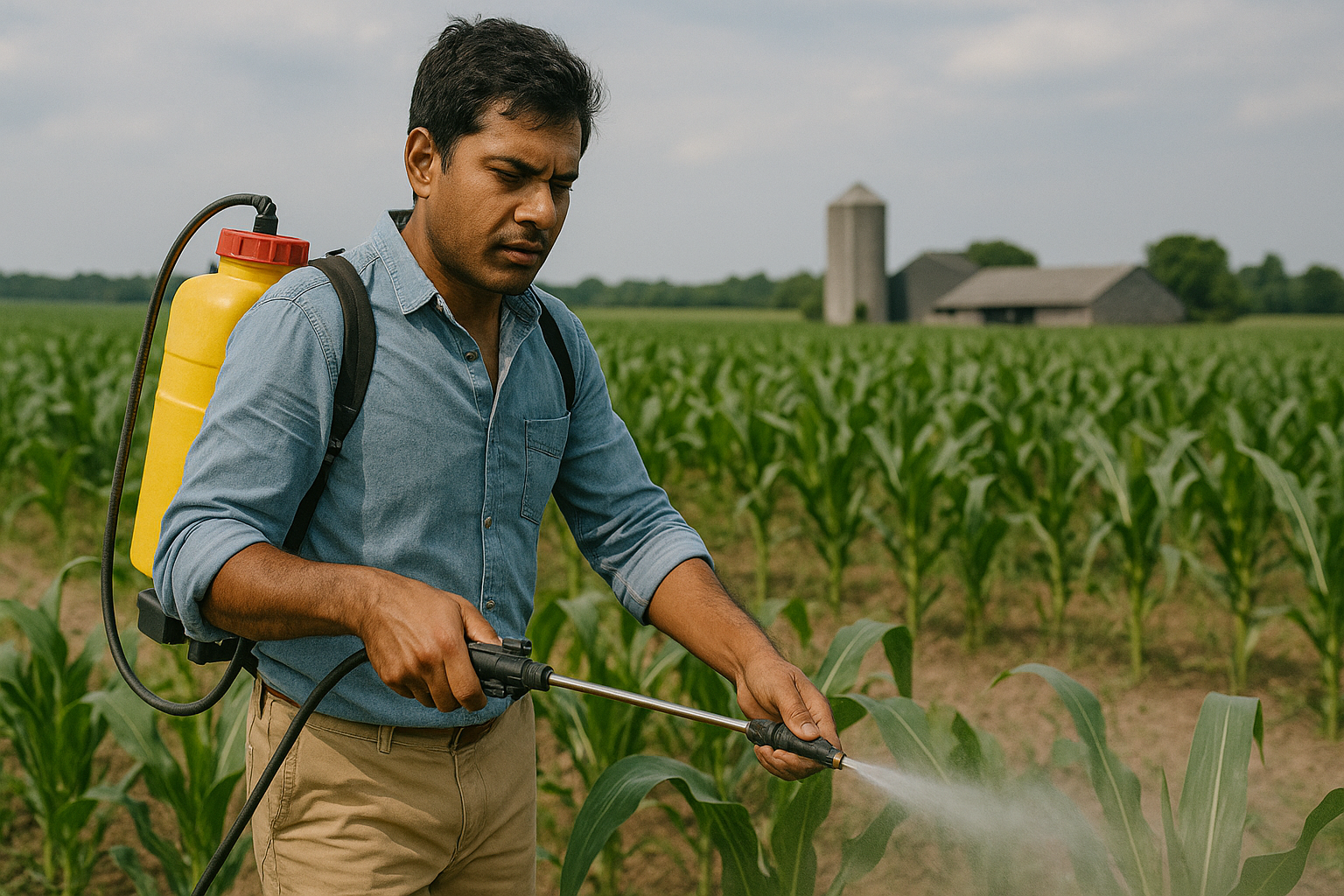Reducing Risk: International Strategies to Phase Out Hazardous Agricultural Pesticides
The FAO/WHO guidance offers a detailed framework for safely phasing out hazardous pesticides, emphasizing legal reform, risk communication, and stakeholder engagement. It supports countries, especially LMICs, in adopting science-based strategies and sustainable alternatives to protect health and the environment. T

In a landmark effort to address the global threat posed by hazardous pesticides, the Food and Agriculture Organization (FAO) and the World Health Organization (WHO) have jointly released a comprehensive guide titled "Guidance on Options for Reducing Risk When Phasing Out Pesticides." This document draws on the expertise of international institutions such as the University of Cape Town, Swedish Chemicals Agency, U.S. Environmental Protection Agency, Wageningen University, and Argentina’s Agricultural and Environmental Biosciences Research Institute. These bodies collaborated under the framework of the International Code of Conduct on Pesticide Management to provide practical, science-based strategies that help countries, especially low- and middle-income ones, safely and efficiently withdraw hazardous pesticides from circulation. With a focus on minimizing harm to human health and ecosystems, the guidance offers both regulatory and operational blueprints for sustainable transitions.
Choosing the Right Path: Immediate Bans vs. Phased Withdrawals
Central to the guidance is the recommendation that countries assess the severity of pesticide-related risks and select between two primary phase-out approaches: immediate bans or phased withdrawals. An immediate ban is deemed necessary when a pesticide poses high or irreversible risks to health or the environment, such as in the case of Endosulfan, which was rapidly banned in New Zealand due to its persistence and widespread toxicity. In such cases, governments must act decisively to revoke registrations and halt all imports, sales, and usage. On the other hand, a phased withdrawal allows for continued but limited use over a predefined period, usually ranging from 18 months to 4 years. This method is often employed when supply chains need time to adjust, especially in regions lacking accessible alternatives. The guide emphasizes that while phased withdrawals may be logistically easier, they require strict monitoring and risk mitigation to avoid prolonged exposure or accumulation of obsolete pesticide stockpiles.
Strengthening Legal Systems to Enforce Change
A core recommendation in the guidance is that governments urgently review and enhance their legal frameworks to support pesticide phase-outs. Many LMICs, the document notes, suffer from outdated or fragmented legislation spread across multiple agencies, limiting the scope of timely regulatory intervention. A robust legal foundation should empower authorities to cancel pesticide registrations based on new risk data, enforce bans, and mandate recalls or disposal. Examples from Morocco, Canada, Georgia, and Chile demonstrate how national laws have been used to impose withdrawal timelines, enforce product recalls, and hold companies financially liable for the safe disposal of banned substances. Moreover, aligning domestic policies with global agreements such as the Stockholm and Rotterdam Conventions strengthens a country’s ability to act decisively while fulfilling its international obligations. Legal tools must also establish enforcement mechanisms, including penalties, seizure powers, and inspection rights, to deter illegal trade and unauthorized use after a ban.
Communicating Risk and Engaging Stakeholders
The guidance places strong emphasis on transparent, inclusive communication as an essential pillar of pesticide phase-out. Simply issuing a regulatory notice is insufficient. Countries must design tailored Risk Communication Plans (RCPs) to ensure that farmers, distributors, retailers, transporters, healthcare professionals, and the public are all aware of the reasons for the ban, the timeline for withdrawal, and how to handle existing stock safely. The guidance outlines a participatory communication model that includes posters, SMS alerts, community radio, infographics, school outreach, and religious platforms to reach low-literate and remote populations. Stakeholder consultation is also vital; pesticide registrants, civil society, environmental groups, health ministries, and farmer unions all have roles in shaping and supporting the phase-out. Successful case studies from countries like Peru, Bangladesh, and Lao PDR demonstrate how transparency and multi-sector engagement can increase public trust and reduce misuse. Such coordinated outreach efforts ensure smoother transitions, avoid panic buying, and encourage compliance with regulatory decisions.
Financing the Transition and Promoting Safer Alternatives
One of the most practical challenges in phasing out pesticides lies in financing the process. The guide proposes that the financial burden be shared among governments, donors, and especially pesticide manufacturers and importers. This may involve levies, extended producer responsibility schemes, and multi-stakeholder taskforces that pool resources for communication, disposal, training, and alternative research. A compelling example is found in Panama, where authorities worked with distributors to re-export banned Carbofuran stocks, with all costs covered by the industry. Furthermore, the guide promotes the adoption of Integrated Pest Management (IPM) and Integrated Vector Management (IVM) as long-term solutions to reduce dependency on chemicals. Governments, academic institutions, NGOs, and the private sector are urged to fund research into low-risk alternatives and train farmers in agroecological practices. These alternatives not only offer effective pest control but also support biodiversity, public health, and climate resilience.
- FIRST PUBLISHED IN:
- Devdiscourse
ALSO READ
High-Stakes Trial: The Man Who Shot Slovak PM Faces Justice
Ambedkar said those who govern country should overcome caste, creed differences to protect hard-won independence: CJI Gavai.
WHO warns of infectious disease surge among deported Afghan migrants amid poor sanitary conditions
UK Government Confirms Unified Wholesale Energy Pricing
WHO Member States Begin Implementation of Landmark Pandemic Agreement










